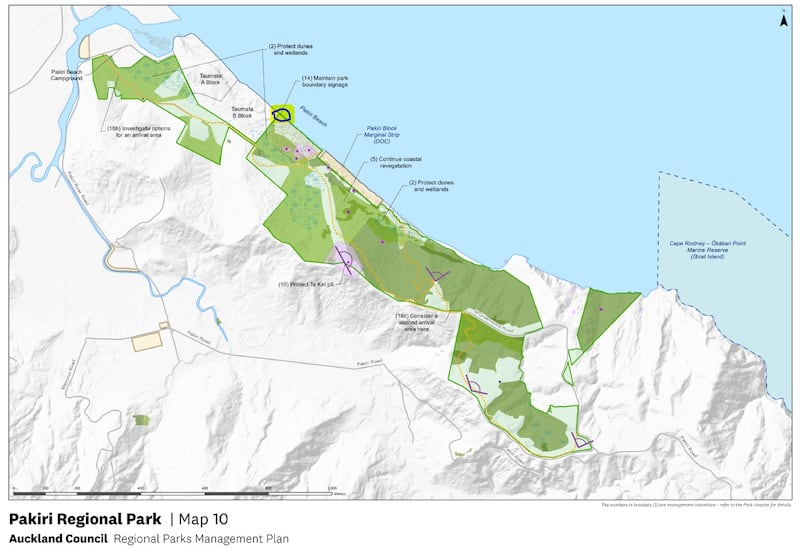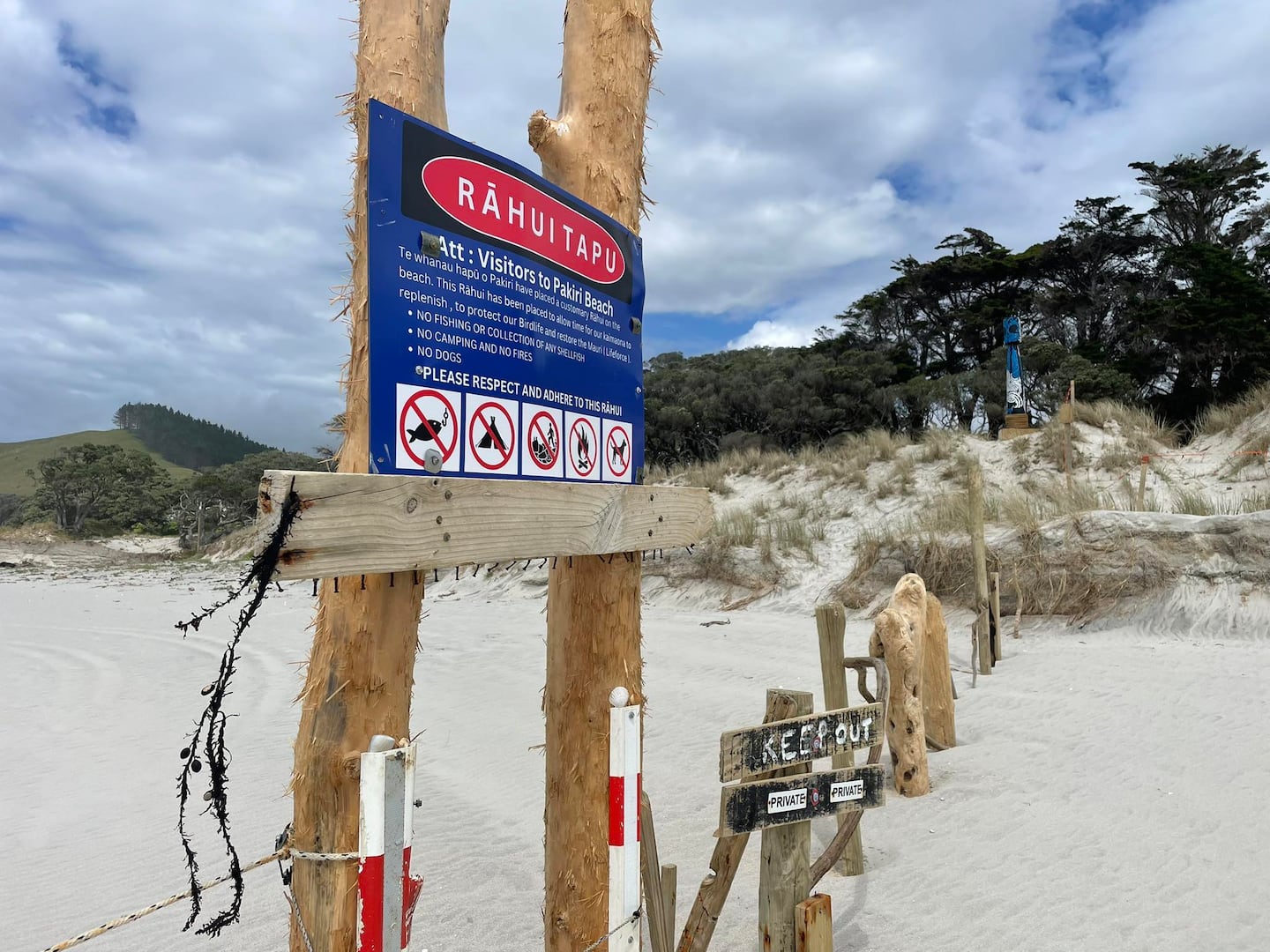A whānau in Pākiri Beach has imposed a rāhui on their slice of paradise to protect against outsiders plundering their kaimoana, particularly their mussel beds.
Landowners of the Taumata B block in Pākiri imposed the rāhui this week, blocking off access to their beach. Whānau in Pākiri have maintained undisturbed possession of their beach and, as ahikā, have the right to refuse access to the public.

The mussel beds are located at the southern end of Pākiri at Ōkakari Point. Whānau refer to the area as Rāhui’s Pātaka.
Sammy Williams, a spokesman for the whānau of Taumata B, says the whānau have drastically blocked public access to the mussel beds, which are important ecologically.
“We’ve put a rāhui on because of the devastation of our kaimoana at our rocks and we also have the last living naturally occurring mussel bed.”
The Brown whānau in Pākiri are like the rest of the original inhabitants of Pākiri, who descend from a single ancestor, Te Kiri, then down to Te Rāhui and her husband, Tenetahi.
Annie Baines, who comes from the marriage of Te Rāhui and Tenetahi, says visitors to the area often pollute the area when visiting, leaving rubbish and even relieving themselves in the nearby sand dunes.
“You go down there; there is toilet paper in the rock pools. That was sort of the last straw, like, nah, we’ve had enough now.”
Back door access
The vicinity of Pākiri Regional Park, administered by the Auckland Council, has made the situation worse. The public can access the mussel beds through the regional park via M Greenwood Rd.
Baines says the public has begun to access the beds through the park to avoid having to walk past the whānau homesteads.
“There’s only one access to the beach, the public access down by the campground, so you could see and monitor people coming and going. Now that they are coming in the back door, we can’t see them.”
Baines and her whānau are also calling for the return of the park and Te Kiri Pā back to them. In 2012, Ngāti Manuhiri settled its Treaty of Waitangi claim and the whānau says they didn’t agree with the idea that the pā and its surrounding land not be returned to the iwi.
“I think they should give us that regional park back. Our pā, Te Kiri’s Pā, is in that regional park that overlooks us all. Not sure why they didn’t go after it in the Treaty settlement. But for us that would be the most favourable thing is just to give it back.”




